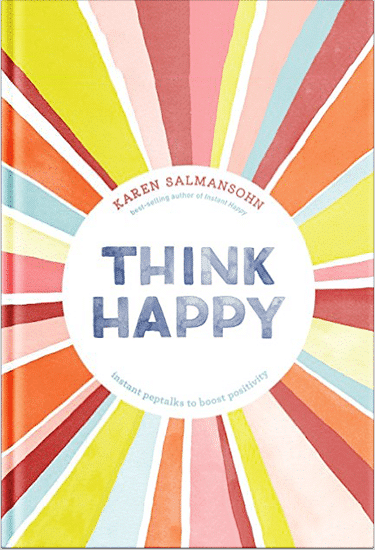 Attention Deficit Hyperactivity Disorder (ADHD) is a complex condition that affects millions of individuals across the globe. It is characterized not only by inattention, hyperactivity, and impulsivity but also by what many experience as overstimulation—a heightened sensitivity to environmental stimuli that can profoundly impact daily functioning.
Attention Deficit Hyperactivity Disorder (ADHD) is a complex condition that affects millions of individuals across the globe. It is characterized not only by inattention, hyperactivity, and impulsivity but also by what many experience as overstimulation—a heightened sensitivity to environmental stimuli that can profoundly impact daily functioning.
I’m sharing this guide on ADHD Overstimulation because I’m a bestselling author on anxiety and leading Mindset Mastery Coach – with about 2 million books sold globally.
Plus I founded the therapist recommended self-paced online program called The Anxiety Cure Digital Course.
I love to help people to live calmer, happier lives. So let’s dive into what it means to potentially have ADHD Overstimulation – and get strategies for both managing and prevention.
In this article, we will delve into the intricacies of ADHD overstimulation, examining its triggers and symptoms. We will explore effective strategies for managing and preventing overstimulation, look at nutritional approaches that enhance key neurotransmitters like dopamine and serotonin, consider the factors involved in deciding whether to use medication and discuss the crucial role of support systems and community for those diagnosed with ADHD.
Join us as we navigate these essential topics, aiming to provide valuable insights and practical advice for individuals coping with ADHD.
Attention Deficit Hyperactivity Disorder (ADHD)
ADHD Overstimulation
Symptoms
-
Mood swings and extreme irritability
-
Restlessness, excessive movement, or inability to stay still
-
-
Increases sensitivity to sensory stimuli like sounds, lights, smell, etc.
-
Extreme anxiety and stress and overemotional to the point that it leads to insomnia or inability to sleep
-
Avoidance behavior or withdrawal from social interactions
Triggers
-
-
Activities requiring multitasking
-
Unexpected changes in routine
-
High stressful situations
-
Emotional stressors
-
Lack of sleep
-
Poor diet and lack of exercise
Strategies for Managing and Preventing ADHD Overstimulation
 To manage and prevent ADHD overstimulation, patients should avoid ADHD triggers.
To manage and prevent ADHD overstimulation, patients should avoid ADHD triggers.
Here are some strategies to manage and prevent ADHD overstimulation:
- Always create a calm environment.
- Establish a routine that includes a regular schedule for 30-minute exercise daily, meals, and sleep.
- Practice yoga and learn meditation or mindfulness techniques
- Join a community or support group
6 Foods that Help Boost Dopamine and Serotonin Levels
Serotonin and dopamine are neurotransmitters in the brain that are responsible for regulating mood and emotions. Reduced levels of these two ‘happy hormones’ may contribute to developing attention deficit hyperactivity disorder (ADHD). Here are 6 food examples that help boost your happy hormones:
Eggs
Eggs are a breakfast staple in every household. It’s a good source of protein and boosts serotonin levels in the body.
Poultry or chicken
Poultry or chicken is an excellent source of lean protein and it’s rich in the amino acid that’s essential for producing serotonin.
Salmon fish
Salmon is rich in tryptophan. It’s an amino acid that helps in the production of serotonin. Salmon helps regulate cholesterol levels, reduces blood pressure, and is an excellent source of omega-3 fatty acids.
Green tea
Green tea contains L-theanine, an amino acid that has anti-anxiety effects and lowers the likelihood of depressive symptoms by increasing dopamine levels in the brain.
Dark green leafy vegetables
Most dark green, leafy vegetables are effective at boosting serotonin levels. Spinach recognized for its high iron content, aids in the production of healthy red blood cells and boasts significant amounts of tryptophan.
Dark chocolate
Dark chocolate, especially varieties with at least 70% cocoa, is rich in flavonoids that help stimulate endorphin production and increase dopamine levels. It’s incredibly tasty!
Factors to consider when Deciding to take Medication
Severity of symptoms
Medication for attention deficit hyperactivity disorder is necessary when its symptoms already affect your daily functioning: your mood, school, work, and even relationships
Personal preference and lifestyle
If you prefer natural methods to increase dopamine and serotonin levels, such as following a dietary meal plan, engaging in regular exercise, practicing mindfulness and yoga, and receiving counseling, instead of relying on medication, that’s fine as long as the symptoms are not severe.
When Advised by a Medical Professional
After consulting a mental health counselor or psychiatrist specializing in Attention deficit hyperactivity disorder (ADHD) and you were diagnosed, it’s important to follow the recommended treatment and medication based on the severity of the symptoms.
Conclusion: Managing and Preventing ADHD Overstimulation
Attention deficit hyperactivity disorder (ADHD) is a significant issue requiring comprehensive strategies for effective management. This article has explored the triggers and symptoms of overstimulation, provided dietary and lifestyle recommendations, and emphasized the importance of support systems. By adopting these approaches, both adults and kids with ADHD can better control their symptoms and enhance their well-being.
Get More Support for ADHD Overstimulation
Explore my therapist recommended audio and video course: The Anxiety Cure Course.
Think happier. Think calmer.
Think about subscribing for free weekly tools here.
No SPAM, ever! Read the Privacy Policy for more information.
One last step!
Please go to your inbox and click the confirmation link we just emailed you so you can start to get your free weekly NotSalmon Happiness Tools! Plus, you’ll immediately receive a chunklette of Karen’s bestselling Bounce Back Book!



 Attention Deficit Hyperactivity Disorder
Attention Deficit Hyperactivity Disorder To manage and prevent ADHD overstimulation, patients should avoid
To manage and prevent ADHD overstimulation, patients should avoid 